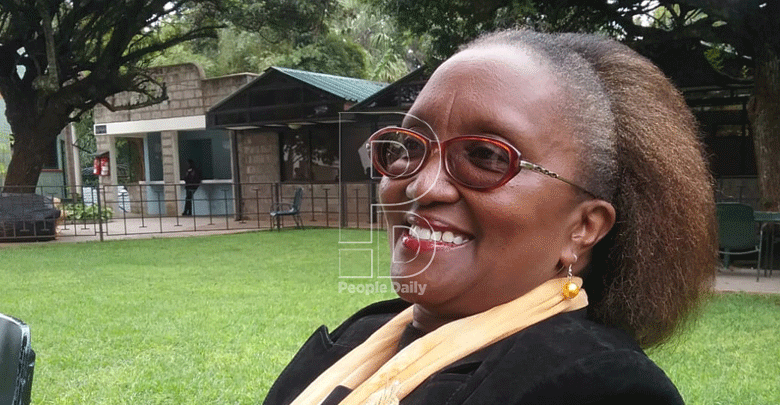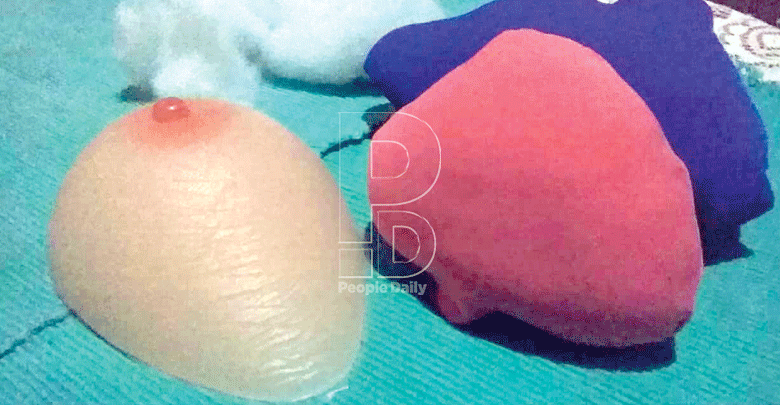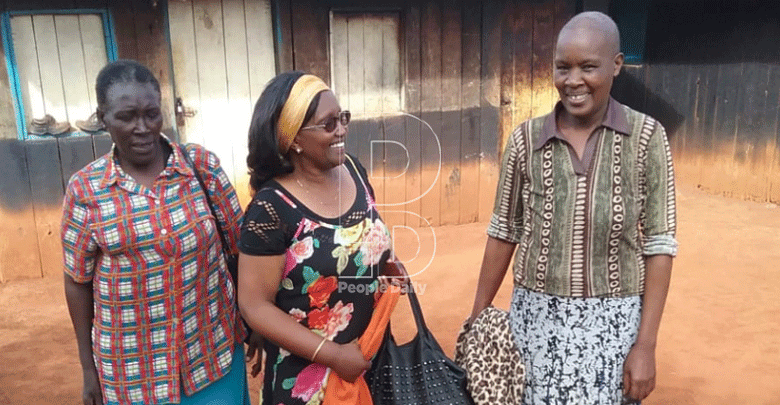Stitching hope for cancer survivors in Nyeri County
By Clifford Akumu, February 8, 2021For Elizabeth Njeri Gathogo, all the information she thought she knew about breast cancer, especially the signs went out the window when she learnt that she had the disease.
“Mine was different. There was no lump on it,” she says. She had knowledge that a lump, nipple discharge, breast looking red or inflamed should sound an alarm.
“In early 2009, I saw one of my breast change colour. I thought I had not applied oil well.
So, as a woman, I went into my dressing room and applied another layer,” she begins.
Njeri, now 61, says a few weeks later, she noticed a small pimple in one side of her breast. She was shocked and concerned.
“It was at a hospital in Nairobi, that I came to learn I had breast cancer after eavesdropping on the doctor’s conversation. But still, I totally denied it,” recalls the mother of five.
The doctors worsened the situation when they said to her face her breast had to be chopped off.
“The beauty of a woman is her chest; without that one feels they are not sexy anymore. I left that hospital very disappointed,” recalls Njeri.
After several consultations from close family and friends, she went to Kijabe Mission Hospital, Kiambu County to seek opinion from another doctor.
In April 2009, she was operated on.
Breast cancer, says Njeri, “Is a nasty, horrible disease that changes people’s lives.”
Today, she is a cancer survivor touching the lives of other patients through advocacy and awareness in the Mount Kenya region.

She was inspired by the levels of stigma and discrimination she faced from her community and relatives.
“We had just come from the HIV/Aids era and stigma was still rife. People decided to avoid me.
They knew I was a burden, always asking for money. Many thought that I had been cursed or I was paying for my wrong deeds,” she explains.
She went into depression, but was soon introduced to Nyeri Hospice, where she learnt a lot about volunteer work, caregiving.
It was here that she formed a small group of four cancer survivors in 2012, which grew to be the Slopes Cancer Awareness Network (SCAN Mount Kenya).
“My vision was to see how I could reach other people so they don’t suffer the stigma and discrimination that I had gone through,” says Njeri.
Despite growing awareness campaigns in the region, there still exists a culture of shame and silence surrounding breast cancer.
This is, especially prominent in rural communities, where women who suffer from the disease fear being banished by their families or blocked from selling properties or land to buy drugs for treatment.

“During our home visits to cancer patients we came a cross cases where women were denied treatment or drugs.
Some had rentals or land, but could not sell them to access care,” explains Njeri.
The group travels the length and breadth of the region to sensitise the population on cancer management. So far, she notes, more people have come forward.
Stitched forms
Besides advocacy, the group stitches breast forms and distributes them to survivors across the region.
Women who have undergone mastectomy, surgery to remove all breast tissue from a breast to treat or prevent breast cancer, are given silicone prosthesis or mastectomy bra, a special bra that has a pocket to hold the breast form or prosthesis in place.
Njeri was given a silicone prosthesis to wear in her bra after her breast was removed. However, it is too expensive and most women cannot afford it.
The prosthesis costs between Sh10,000-25,000. It is very delicate and must be handled with care to last for a year.
Njeri became innovative, “I started making my own breast forms,” she says.
The group uses new material pieces they collect from well-wishers, tailors and dressmakers, to stitch the pieces and fill them with fiber.
In October 2018, the group celebrated the cancer awareness month in Nyeri by giving free breast forms to survivors.
They also had a tent where they showcased how they make the breast forms and created awareness on cancer.
“Breast forms are easy to wear, and women can use any type of bra,” Njeri explains.
Besides advocating for close collaboration between government and organisations like hers, she calls a robust primary healthcare equipped with drugs and healthcare specialists.
“I want to make life better for people who are suffering from cancer, and that’s what I’m doing.
I am happy our voices as survivors, is already bearing fruit and our face is that of hope,” concludes Njeri.
